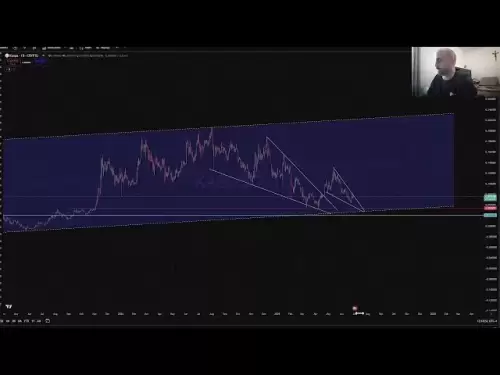-
 Bitcoin
Bitcoin $107,352.1067
0.28% -
 Ethereum
Ethereum $2,429.3531
-0.90% -
 Tether USDt
Tether USDt $1.0001
-0.02% -
 XRP
XRP $2.1894
4.62% -
 BNB
BNB $646.7968
0.36% -
 Solana
Solana $147.4290
4.03% -
 USDC
USDC $0.9998
-0.02% -
 TRON
TRON $0.2756
1.52% -
 Dogecoin
Dogecoin $0.1630
1.14% -
 Cardano
Cardano $0.5612
1.18% -
 Hyperliquid
Hyperliquid $37.0580
-0.05% -
 Bitcoin Cash
Bitcoin Cash $496.9410
-0.09% -
 Sui
Sui $2.7318
3.19% -
 Chainlink
Chainlink $13.1503
0.58% -
 UNUS SED LEO
UNUS SED LEO $9.0766
0.55% -
 Avalanche
Avalanche $17.7220
1.46% -
 Stellar
Stellar $0.2380
1.52% -
 Toncoin
Toncoin $2.8439
0.38% -
 Shiba Inu
Shiba Inu $0.0...01143
1.84% -
 Litecoin
Litecoin $85.8053
1.47% -
 Hedera
Hedera $0.1483
2.70% -
 Monero
Monero $314.3240
2.12% -
 Bitget Token
Bitget Token $4.6725
0.77% -
 Dai
Dai $1.0000
0.00% -
 Polkadot
Polkadot $3.3555
1.28% -
 Ethena USDe
Ethena USDe $1.0001
0.02% -
 Uniswap
Uniswap $7.0890
2.64% -
 Pi
Pi $0.5355
-3.40% -
 Pepe
Pepe $0.0...09393
1.06% -
 Aave
Aave $256.8136
-1.90%
Bitcoin address registration and setting details
Bitcoin addresses are generated by wallet software, not registered; they're public identifiers for receiving Bitcoin, while private keys must remain secret to secure your funds.
Apr 01, 2025 at 01:28 pm
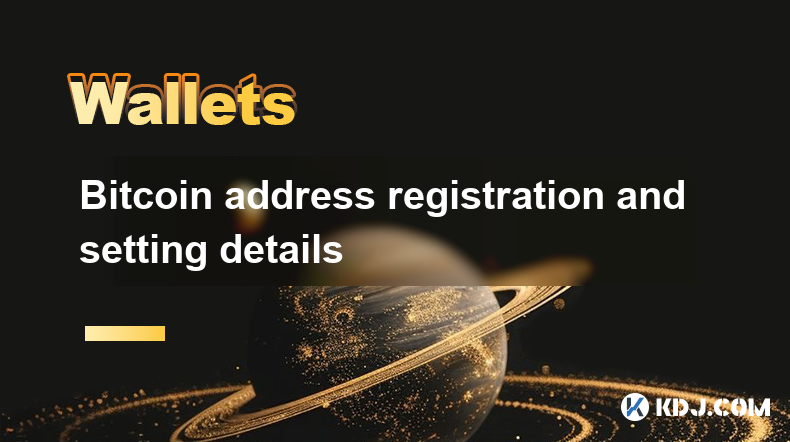
Understanding Bitcoin Addresses
A Bitcoin address isn't something you "register" in the traditional sense. Unlike email addresses or usernames, you don't sign up for a Bitcoin address with a central authority. Instead, it's a cryptographic hash generated by your Bitcoin wallet software. This address acts as your public identifier on the Bitcoin network, allowing others to send you Bitcoin. Think of it as your bank account number, but without the bank. You can generate as many addresses as you need from your wallet.
Generating a Bitcoin Address
The process of obtaining a Bitcoin address is straightforward. It's automatically generated when you create a new wallet. Most wallets will display your address immediately after setup. The address itself is a long string of alphanumeric characters, typically starting with a 1, 3, or bc1. Always double-check the address before sending or receiving Bitcoin to avoid irreversible errors.
Choosing a Bitcoin Wallet
The type of wallet you use significantly impacts how you manage your Bitcoin addresses. Different wallets offer varying levels of security and functionality. Hardware wallets are generally considered the most secure, storing your private keys offline. Software wallets, either desktop or mobile, are convenient but require careful security practices. Web wallets offer accessibility but carry higher risks due to reliance on third-party services. The choice depends on your technical skills and risk tolerance.
Understanding Private Keys
While your Bitcoin address is public, your private key is absolutely crucial and must be kept secret. This key is essentially the password to your Bitcoin. It allows you to spend the Bitcoin associated with the address. Losing your private key means losing access to your Bitcoin, and there's no recovery process. Never share your private key with anyone.
Security Best Practices for Bitcoin Addresses
Protecting your Bitcoin addresses and private keys is paramount. Here are some essential steps:
- Use a strong, unique password for your wallet.
- Enable two-factor authentication (2FA) if available.
- Regularly back up your wallet and store the backup securely offline.
- Be wary of phishing scams and fraudulent websites.
- Only use reputable wallet providers and exchanges.
- Consider using a hardware wallet for enhanced security.
- Keep your wallet software updated with the latest security patches.
- Avoid using public Wi-Fi when accessing your wallet.
Multiple Bitcoin Addresses: Why Use Them?
Generating multiple Bitcoin addresses within a single wallet is a recommended security practice. Each transaction uses a unique address, improving privacy and reducing the risk of linking transactions to a single identity. This approach makes it harder to track your Bitcoin activity. Using a new address for each transaction is a best practice.
Importing and Exporting Bitcoin Addresses
While you don't directly "register" a Bitcoin address, you might need to import or export them depending on your wallet and its functionality. Importing an address allows you to access funds associated with that specific address. Exporting allows you to back up your addresses, crucial for recovery in case of data loss. Always follow the instructions provided by your specific wallet software.
Bitcoin Address Formats
Bitcoin addresses come in different formats, primarily due to the evolution of the Bitcoin network. Legacy addresses (starting with 1) are older, while SegWit addresses (starting with 3 or bc1) are more efficient and offer improved privacy. Most modern wallets automatically generate SegWit addresses. Understanding these formats helps you identify the type of address you're dealing with.
Troubleshooting Common Issues
- Incorrect Address: Double-check the address before sending or receiving Bitcoin. A single incorrect character can result in irreversible loss of funds.
- Wallet Issues: If you're having trouble accessing your wallet or generating addresses, consult the wallet provider's support documentation.
- Transaction Errors: If a transaction fails, check the transaction details and consult the relevant blockchain explorer.
Frequently Asked Questions
Q: Can I change my Bitcoin address?
A: You can't change an existing Bitcoin address, but you can generate new ones within your wallet. You should use a new address for each transaction.
Q: What happens if I lose my private key?
A: Losing your private key means losing access to the Bitcoin associated with that address. There's no recovery process.
Q: Is it safe to use online wallets?
A: Online wallets offer convenience but carry higher risks compared to hardware or software wallets due to reliance on third-party services. Choose reputable providers and be mindful of security practices.
Q: How many Bitcoin addresses can I have?
A: You can generate as many Bitcoin addresses as you need from your wallet. Using a new address for each transaction is recommended for enhanced privacy and security.
Q: What is the difference between a Bitcoin address and a private key?
A: Your Bitcoin address is public, like your bank account number. Your private key is secret, like your bank password, and is needed to spend your Bitcoin. Never share your private key.
Q: How do I find my Bitcoin address?
A: Your Bitcoin address is typically displayed in your wallet after you've set it up. Check your wallet's interface for instructions on how to view your addresses.
Q: What should I do if I think my Bitcoin address has been compromised?
A: If you suspect compromise, immediately secure your wallet, change your passwords, and contact your wallet provider or a cryptocurrency security expert. Move your funds to a new, secure wallet.
Disclaimer:info@kdj.com
The information provided is not trading advice. kdj.com does not assume any responsibility for any investments made based on the information provided in this article. Cryptocurrencies are highly volatile and it is highly recommended that you invest with caution after thorough research!
If you believe that the content used on this website infringes your copyright, please contact us immediately (info@kdj.com) and we will delete it promptly.
- RUVI Token Soars: Can It Eclipse Cardano's Forecast?
- 2025-06-29 02:30:12
- Meme Coin Mania: Can Little Pepe Outshine Shiba Inu and Dogecoin?
- 2025-06-29 02:30:12
- XRP Tokens: Navigating Financial Status and the Art of Buying In
- 2025-06-29 02:50:12
- Transparent Fees, Trading Power, No Surprises: LeveX's Honest Approach
- 2025-06-29 02:50:12
- DAO Price, Total Value Locked, and All-Time Highs: What's Driving the DeFi Surge?
- 2025-06-29 03:21:18
- BlockDAG, Polygon, Render, and Polkadot: Navigating the Altcoin Landscape in NYC Style
- 2025-06-29 03:21:18
Related knowledge

How to stake cryptocurrencies on Coinbase? Benefits and risks
Jun 27,2025 at 06:36pm
Understanding Cryptocurrency Staking on CoinbaseStaking cryptocurrencies involves locking up digital assets to support the operations of a blockchain network, typically in return for rewards. Coinbase, one of the most popular cryptocurrency exchanges globally, offers staking services for several proof-of-stake (PoS) coins. Users can stake their holdings...

How to contact Coinbase customer service? Support channels and response times
Jun 28,2025 at 01:29pm
Contacting Coinbase Customer Service: Support Channels and Response TimesIf you're a user of Coinbase, reaching their customer service team may become necessary for various reasons, such as account verification issues, transaction disputes, or technical difficulties. Understanding the different support channels available and what to expect in terms of r...

Coinbase advanced trading function usage tutorial: limit orders and market orders
Jun 28,2025 at 09:07pm
Understanding the Difference Between Limit Orders and Market OrdersWhen using Coinbase's advanced trading features, it is crucial to understand the fundamental difference between limit orders and market orders. A market order executes immediately at the best available price on the market. This type of order ensures that your trade goes through quickly, ...
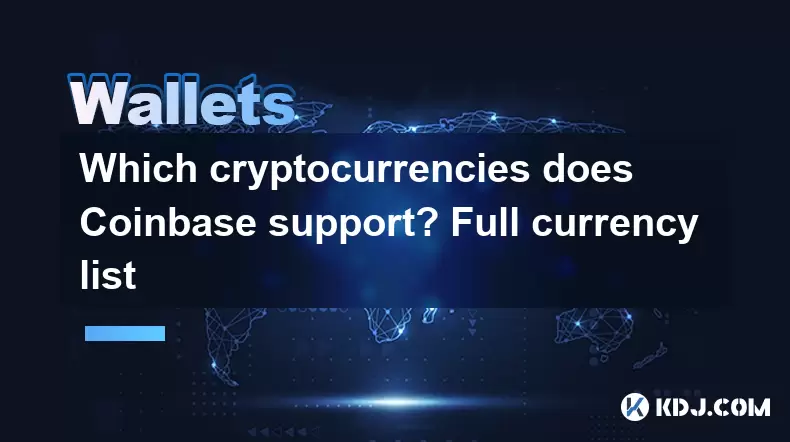
Which cryptocurrencies does Coinbase support? Full currency list
Jun 28,2025 at 08:36am
Overview of Cryptocurrencies Supported by CoinbaseCoinbase is one of the most popular and trusted cryptocurrency exchanges globally. It provides users with a platform to buy, sell, trade, and store various digital assets. As of the latest updates, Coinbase supports over 200 cryptocurrencies, including major ones like Bitcoin (BTC), Ethereum (ETH), and L...
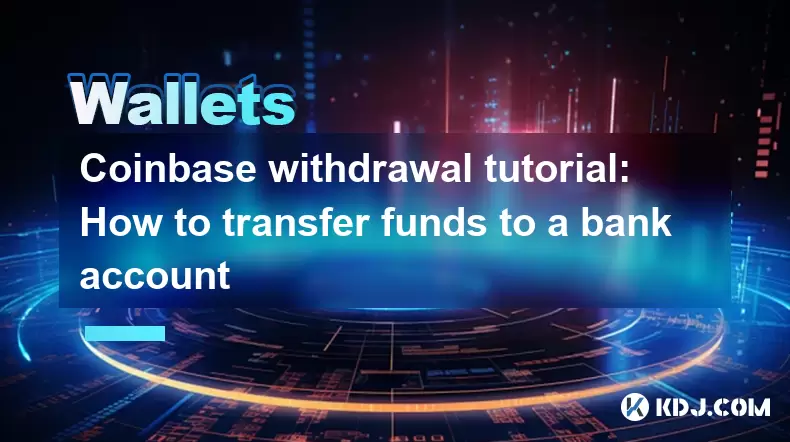
Coinbase withdrawal tutorial: How to transfer funds to a bank account
Jun 28,2025 at 02:35am
Understanding Coinbase WithdrawalsCoinbase is one of the most widely used cryptocurrency platforms, allowing users to buy, sell, and store digital assets. Once you've successfully traded or held your crypto on Coinbase, the next logical step may be to withdraw funds to a bank account. This process involves converting your cryptocurrency into fiat curren...
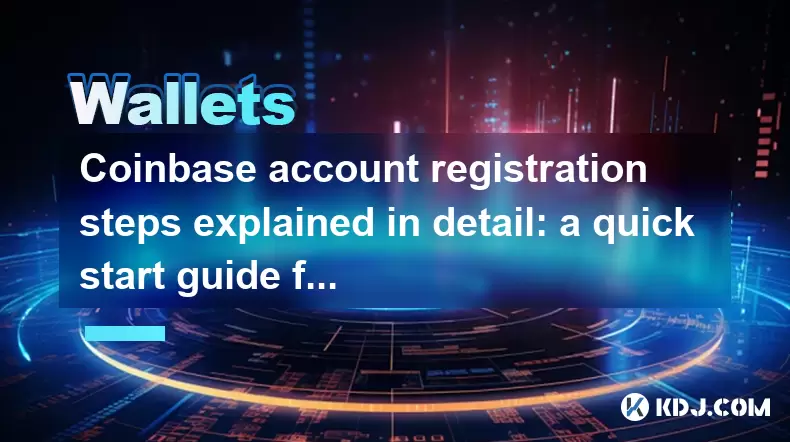
Coinbase account registration steps explained in detail: a quick start guide for beginners
Jun 29,2025 at 03:00am
Understanding the Coinbase PlatformCoinbase is one of the most popular and trusted cryptocurrency exchanges in the world. It allows users to buy, sell, store, and manage various cryptocurrencies with ease. For beginners, understanding how to create a Coinbase account is the first crucial step toward entering the world of digital assets. Before diving in...

How to stake cryptocurrencies on Coinbase? Benefits and risks
Jun 27,2025 at 06:36pm
Understanding Cryptocurrency Staking on CoinbaseStaking cryptocurrencies involves locking up digital assets to support the operations of a blockchain network, typically in return for rewards. Coinbase, one of the most popular cryptocurrency exchanges globally, offers staking services for several proof-of-stake (PoS) coins. Users can stake their holdings...

How to contact Coinbase customer service? Support channels and response times
Jun 28,2025 at 01:29pm
Contacting Coinbase Customer Service: Support Channels and Response TimesIf you're a user of Coinbase, reaching their customer service team may become necessary for various reasons, such as account verification issues, transaction disputes, or technical difficulties. Understanding the different support channels available and what to expect in terms of r...

Coinbase advanced trading function usage tutorial: limit orders and market orders
Jun 28,2025 at 09:07pm
Understanding the Difference Between Limit Orders and Market OrdersWhen using Coinbase's advanced trading features, it is crucial to understand the fundamental difference between limit orders and market orders. A market order executes immediately at the best available price on the market. This type of order ensures that your trade goes through quickly, ...

Which cryptocurrencies does Coinbase support? Full currency list
Jun 28,2025 at 08:36am
Overview of Cryptocurrencies Supported by CoinbaseCoinbase is one of the most popular and trusted cryptocurrency exchanges globally. It provides users with a platform to buy, sell, trade, and store various digital assets. As of the latest updates, Coinbase supports over 200 cryptocurrencies, including major ones like Bitcoin (BTC), Ethereum (ETH), and L...

Coinbase withdrawal tutorial: How to transfer funds to a bank account
Jun 28,2025 at 02:35am
Understanding Coinbase WithdrawalsCoinbase is one of the most widely used cryptocurrency platforms, allowing users to buy, sell, and store digital assets. Once you've successfully traded or held your crypto on Coinbase, the next logical step may be to withdraw funds to a bank account. This process involves converting your cryptocurrency into fiat curren...

Coinbase account registration steps explained in detail: a quick start guide for beginners
Jun 29,2025 at 03:00am
Understanding the Coinbase PlatformCoinbase is one of the most popular and trusted cryptocurrency exchanges in the world. It allows users to buy, sell, store, and manage various cryptocurrencies with ease. For beginners, understanding how to create a Coinbase account is the first crucial step toward entering the world of digital assets. Before diving in...
See all articles























